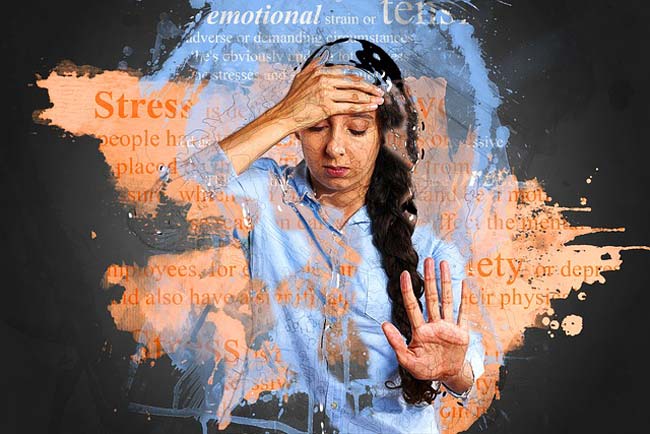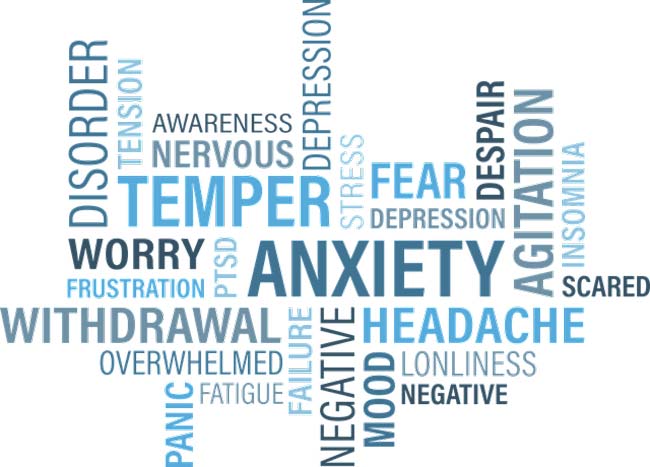The thing about phobias is that they are greatly misunderstood.
This can make it very difficult for those who suffer with a particular phobia, because family and friends may view their reaction as a massive overreaction and have the attitude of “get over it”, or “calm down”.
This is due to our tendency to confuse phobia with simply being a fear. For example, “a fear of spiders”.
Actually, the large majority of people are fearful of spiders – because it is an innate human response to seeing a potentially dangerous animal.
We see the animal and we know the animal is potentially unpredictable and poisonous, so naturally we have a fear of being near the animal. This instinct is what helps us survive.
But fear is very different to a phobia. Phobias are more intense and can lead to severe anxiety and panic attacks for some people.
Symptoms can range from freezing on the spot to running away, to shaking and sweating and screaming.
In this post I'll discuss my personal phobia and how hypnosis can help, and how you can begin helping yourself at home today with hypnosis audio.

A phobia can make you feel trapped and uneasy, even when not faced with your trigger.
Categories of Phobia
Phobias generally fall into one of the following categories.
- Animal phobias (eg. spiders, snakes or dogs)
- Environmental phobias (eg. heights, germs, open water)
- Situational phobias (eg. flying or visiting the dentist)
- Bodily phobias (eg. having injections, vomit or blood)
- Sexual phobias (eg. fear of getting a sexually transmitted infection or performance anxiety)
- Other (e.g. certain objects or food items)
My Personal Experience
I used to have a genuine phobia around spiders, and to a degree I still do.
This was triggered by one particular incident in my childhood, where a huge spider crawled up my leg in bed.
The unpredictability of this happening, and the vulnerability I felt not knowing where the spider had gone once I realized something was crawling up my leg created a fear that this incident could be repeated at any time, and that I had no control over the situation.
This unfortunately led me to a point where I had to kill any spider I saw in the house, because I feared if it escaped it would somehow seek me out and do the same as the spider in my bed had done.
Of course, if you speak to any arachnid expert they will tell you that this is absolutely irrational. They will also tell you that where I am from, in the United Kingdom, it is very unlikely that I would be bitten by a spider, let alone pursued by one.
And if I was bitten by a false widow, for example, it probably wouldn't be that bad anyway.
Luckily, with the help of hypnosis for phobias, I have been able to push back on some of that irrationality and -retrain my subconscious mind to respond slightly differently.
It has taken me many years to get to a point where I am able to capture a spider in a glass and put it outside without freaking out, or simply let it go free in the house.
Having said that, if it is a big spider and I don't catch it in time to put it outside, it does still plague my mind for a number of hours afterwards.
My phobia is a common one, but there are many others.
One example of a fairly unheard-of phobia is molluscophobia, defined as a fear of snails and slugs.
I have a friend who is freaked out by any slug or caterpillar type insect. She has a full on panic attack and will shake and scream and be affected for many hours after.
Again, this goes back to an incident in her childhood where a friend played a trick on her by putting a large hairy caterpillar on her shoulder. She is unable to even seek help because she thinks that during the therapy she will be made to talk about these insects or shown pictures of them, and she can't even bear to look at one without going into a panic.
Often people laugh at this phobia, and while it might seem silly to be scared of slugs, for the person experiencing the phobia it runs so much deeper than being silly, to the point where the phobia begins to control your life. In this case: where she goes, what books she looks at, the weather she goes out in, etc.
There are many different types of phobia, including common ones such as fear of flying, fear of heights, and fear of snakes. In fact, my father's friend has such a fear of snakes that we don't even mention them around her.
There are other more unheard of phobias, such as Tokophobia, which is an extreme fear of pregnancy.
According to the National Childbirth Trust (NCT), between 20 – 78% of pregnant women report pregnancy-related fear, yet only 13% report a fear so overwhelming that they either postpone or completely avoid childbirth.
This is astonishing. Can you imagine that so many women are putting off having children because they have a genuine fear of giving birth?
Hypnosis for Phobias Treatment
Phobias exist on a subconscious level, so no matter how much others tell us to stop overreacting, or we tell ourselves to calm down, we are unable to control the anxiety and fear the symptoms that come along with that.
The good news is that phobias are vulnerable to hypnotherapy, because hypnotherapy as a treatment targets the subconscious mind. The subconscious mind is what controls our conscious responses to all the different circumstances we encounter on a day to day basis.
Think of it like a hard drive that contains all the information you have ever learned since you were born. The reason you react the way you do to your trigger is because of the beliefs about this trigger held in your subconscious mind.
Hypnotherapy can help you unlearn the negative response and learn new information and a subsequent default response.
Research shows hypnosis can work for those with phobias:
- A study by Stamford University on the fear of flying showed that “hypnotizable patients were over two and one half times more likely to report some positive treatment impact than those who were found to be non-hypnotizable” (1).
- Another case study on social phobia found that “that the patient was able to engage in social and professional affairs that were impossible prior to treatment” (2).
- And in dental phobia, a study on 12 patients found that “hypnosis is a powerful and successful method for inhibiting the reaction of the fear circuitry structures” (3).
It's worth noting that genetics may play a factor in your phobia. Some people are born with a tendency towards anxiety, or inherit some anxiety through environmental exposure from parents or others they grew up around.
Mental health conditions such as depression, long-term stress and anxiety can all lead to the development of phobia.
One thing is for sure, though, phobias are rooted in the past. There will have been a time when your subconscious inherited the information it required to trigger the phobia in the conscious mind.
Hypnosis treatment involves a hypnotherapist putting you into a relaxed state. You remain in complete control but as the therapist begins to ask questions your subconscious mind will open up with the answers.
For example, if you are unsure how your phobia developed, then time will be spent getting to the root of this and potentially remembering the trigger event, if there was one. Getting to the root cause will open a pathway for getting past this phobia.
Over a number of sessions you will gently and gradually confront your phobia, while being in a calm state. This is key to the process of therapy, because your subconscious mind will learn a new behavior. That behavior is being able to be confronted with the trigger yet remaining calm and able to cope.
Over time your phobia symptoms will weaken as you develop a new perspective towards the trigger.

A phobia can trigger a range of mental and physical reactions.
Self-Hypnosis – Treating Yourself at Home
One thing that makes it hypnotherapy potentially prohibitive to some is the cost. Hypnotherapy can cost up to $100 an hour, depending on where you live and the level of expertise the hypnotist has.
Some people may be able to afford one or two sessions but beyond that it can be quite expensive, particularly on an average income like mine.
And this is where living in the digital age can help. There are self-hypnosis audios written and designed by hypnotherapists, and often accompanied by relaxing music, that can help you treat yourself at home.
You simply find a quiet space, free from distraction, slip on your headphones and press play. The hypnotherapist will then lead you into the same mental state of relaxation and calm as you would if you were in their office on the couch, and then begin the same treatment.
They call this self-hypnosis, but you are not actually hypnotizing yourself, it is just that you are by yourself and taking it upon yourself to listen to the audio.
Some people prefer this method because it can be quite daunting to go to a hypnotherapist for the first time, particularly if you are suffering from some kind of social anxiety where you aren't good with meeting new people and find it difficult to feel relaxed in new environments.
If possible I'd recommend combining the two: see a professional and then use self-hypnosis audios at home for extra treatment and to reinforce the training.
If you are on a very limited budget then try just starting out with the self-hypnosis audios. If you can afford to go for a series of sessions with a professional hypnotherapist, then of course that will be very beneficial.
Buying Self-Hypnosis Audios
There's a number of stores online where you can buy hypnosis audios, but you do have to be careful where you buy them from. You want something of high quality, and most importantly the script should be written and created by a qualified hypnotherapist that has been practicing for some time.
I can personally recommend the hypnosis downloads and self-hypnosis websites. If you click on the links below will take you straight to their website. They have downloads that cover all kinds of phobias.
=> Click to Go to Hypnosis Downloads
=> Click to Go to Self Hypnosis
A Last Word of Help & Encouragement
If you have read this post and it has resonated with your phobia and how you feel, then I suggest also talking to your family and friends about the triggers for your phobia and the feelings and emotions that come over you.
People tend not to realize that the reaction is mental and physical. It can take a lot out of you and really zap your energy. Even after the event it can make you feel uneasy and somewhat down, because you feel like an outsider, as if you are the only person who is having this response to a seemingly normal situation that others tolerate without issue.
It's important that you have the support of your loved ones and that they are there to help you to. It is also particularly useful because if your phobia trigger arises and people around you start saying negative things to you or feeling irritated because of the way you behave, it will only make your phobia worse.
If they know that this is very real for you and that it has mental and physical implications, then they will understand how they can be supportive in that situation and make it more comfortable for you.
Along with the hypnotherapy, this will go a long way in helping you get to a point where you are able to cope. I say able to cope, and not cured, because depending on your age and the severity of your phobia, it may not be possible to ever be completely comfortable with your trigger.
I am not completely comfortable with spiders, but I can cope and live a normal life by not reacting the way I used to.
If you need any advice or you have a particular question, then leave it in the comments section and maybe I can help out.



Leave a Reply